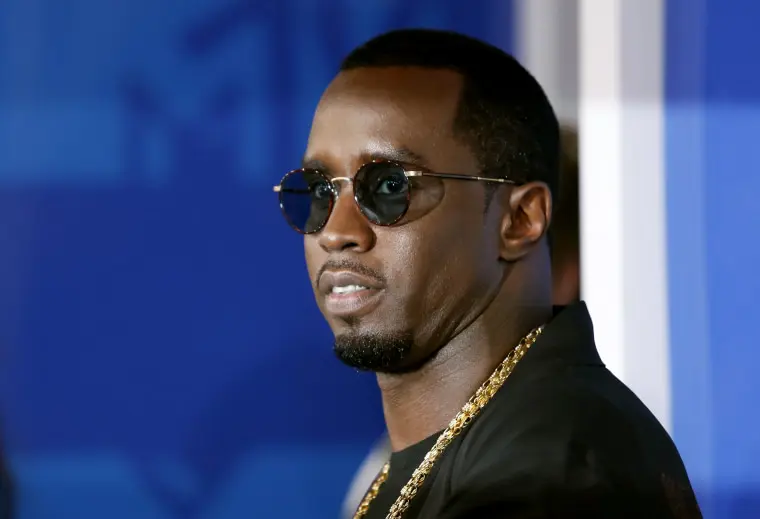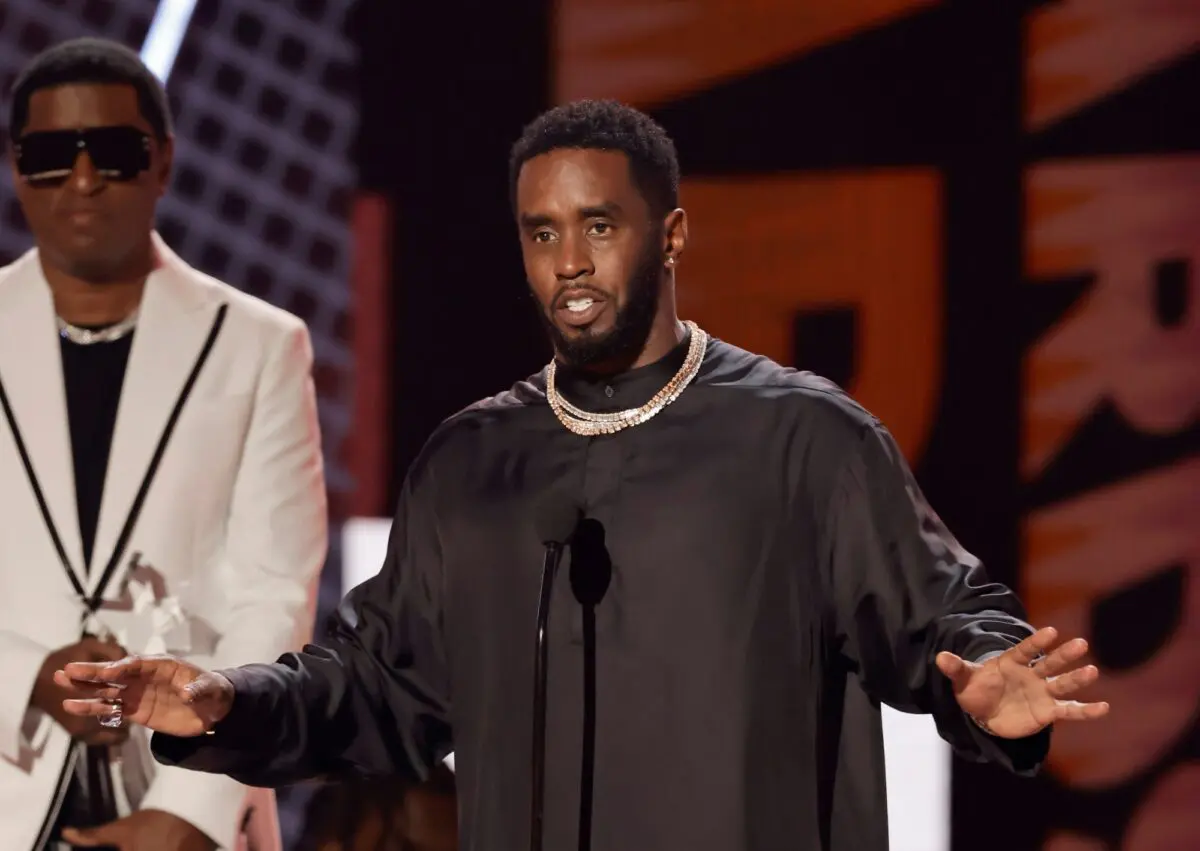The shocking allegations surrounding Sean ‘Diddy’ Combs continue to echo throughout the entertainment industry, igniting fierce dialogues regarding power dynamics, consent, and the influence of celebrity culture. An ex-assistant of Combs, Phillip Pines, recounts a troubling experience that raises profound questions about loyalty and manipulation in the high-stakes world of celebrity. With an unflinching lens, we delve into the intricacies of these allegations, exploring the implications they carry for both the accused and the broader social narrative.
Pines’ claims come to light in the wake of his recent lawsuit filed against the mogul, where he details a harrowing experience that blends the personal with the disturbing. While the specifics of this case unveil a deeply unsettling perspective on the nature of loyalty, they also serve as a catalyst for discussions about the responsibility of those in positions of power. The intertwining stories of alleged coercion, manipulation, and exploitation raise critical concerns that demand further examination.
The Allegations Unfold
The narrative begins with an alleged incident from 2019, the year Pines started working with Diddy. It was during a lavish party, a common occurrence within the circles surrounding Combs, that Pines claims he was confronted with an outrageous demand. According to Pines, Diddy forcefully told him to ‘prove his loyalty’ by engaging in sexual activities with a woman at the party. This shocking assertion sheds light on the troubling atmosphere cultivated in some of these elite social settings.
Pines recounted Diddy approaching him under intoxicated pretenses, asserting that the rapper had created an environment that blurred the lines of normalcy and consent. This manipulative tactic, as claimed by Pines, was not merely an isolated incident but rather a reflection of a broader abuse of power, highlighting the pervasive gender issues and psychological manipulation embedded within the narrative of celebrity culture. The sexual coercion alleged by Pines echoes concerning stereotypes prevalent in discussions surrounding loyalty and masculinity, where proving oneself often comes at a grave moral cost.

The Dynamics of Power and Loyalty
At the heart of this scandal lies the complex relationship between power and loyalty. In many industries, including entertainment, the pressure to submit to demands from those in authority can lead to troubling situations where personal integrity is tested. Pines’ experience illustrates this precarious balance vividly. As he walked through the glamorous yet treacherous environment of Diddy’s parties, he was faced with an ultimatum that questioned his very personal ethics.
Essentially, Diddy’s proposition was wrapped up in the guise of camaraderie and allegiance – a classic manipulation tactic designed to exploit vulnerabilities. Pines expressed feeling cornered; the expectation placed upon him in that moment was to conform to the machinations of loyalty defined by Diddy, thus stripping away the autonomy and choice of individuals involved.
The broader conversation surrounding these dynamics illuminates how individuals, often aspiring to elevate their careers or maintain their positions, may find themselves in compromising situations, further emphasizing the need for open dialogues about consent and personal agency.
A Look at the Lawsuit
Pines filed a lawsuit against Diddy in December 2024, including charges of sexual battery, harassment, and sex trafficking. This legal action has brought a spotlight on the intricate entanglements of celebrity influence and ethical responsibility. The lawsuit proposes serious implications, not just for Diddy, but for the entire entertainment landscape, forcing fans, practitioners, and critics alike to reevaluate what it means to be loyal at the expense of one’s well-being.
In the lawsuit, Pines detailed disturbing allegations regarding not only the coercion but also the fallout from his employment. Primarily, he claimed to have been responsible for facilitating the notorious ‘Wild King Nights’ events, which were allegedly rife with exploitative conditions and fueled by substances that compounded the already dangerous atmosphere. The gravity of each accusation within the lawsuit suggests a pattern of behavior that could redefine how individuals perceive power and its abuses.

Understanding the Broader Context
The allegations against Diddy do not exist in a vacuum; they mirror a larger societal reckoning surrounding sexual misconduct and the intricate dynamics of power within the workplace. Across various industries, survivors have begun to articulate their experiences, providing a community of support that empowers others to step forward. The #MeToo movement has played a pivotal role in fostering conversations that challenge misguided loyalties and cultural expectations surrounding celebrity status.
In light of recent allegations, figures previously held in high regard face scrutiny. Society’s evolving perception of accountability demands that those in positions of power face repercussions for their actions. Moving forward, understanding the implications of loyalty as defined in these contexts is vital for fostering a safer environment, where individuals can work without fear of coercion or manipulation.
Complexities of Consent
Pines claims that during the incident where Diddy allegedly pressured him, he was aware of the woman’s consent but recognized the coercive environment surrounding the action. This speaks volumes about the complexities of consent within hierarchical relationships where power imbalances can skew perceptions of choice. The manipulation of consent is a critical issue in understanding sexual coercion and loyalty tests as illustrated in Pines’ account.
The term ‘consent’ often bears a simplified understanding, but nuanced discussions reveal that when consent is obtained under duress or manipulation, it invalidates the autonomy of the individual. As this narrative unfolds, the implications bear deeply on the public if we are to shift perceptions regarding relationships, integrity, and accountability.
Moral Responsibility of Celebrities
As a figure once admired and revered, Diddy’s current circumstances challenge the very foundation of his celebrity status. The stark contrast between the adoration he cultivated and the allegations being levied against him raises imperative questions about moral responsibility and accountability in public life. Society looks towards its icons as role models; when they fail to uphold ethical standards, it begs for a reassessment of our connections with fame.
Celebrities wield immense influence that can shape cultural narratives and societal norms. This influence, however, brings with it an inherent responsibility to maintain personal integrity and ethical interactions with others. Failure to do so not only affects their image but also ripples throughout communities, impacting the very fabric of societal expectations.

Future Implications
The trajectory of Diddy’s case, along with similar accusations filed against other figures, recalibrates how society views celebrity engagement and manipulative ecosystems. Discussions surrounding accountability in the entertainment industry are becoming increasingly urgent, reminding us that the myths surrounding fame must be dismantled.
This transformative period within social dialogue aims to not only advocate for victims but to educate future generations on the nuances of power, consent, and loyalty within interpersonal relationships. As the landscape shifts, the collective consciousness around these issues must be nurtured to prevent future exploitation.
Reflections on Power, Manipulation, and Celebrity Culture
As we reflect on the ongoing narrative surrounding Sean ‘Diddy’ Combs and the disturbing subject of sexual coercion, it’s evident that this case is emblematic of larger issues at play within the celebrity culture. The intricate dynamics of loyalty and power are not isolated incidents; they shine a light on a systemic problem that transcends individual experiences.
With the powerful positions held by individuals like Diddy comes the responsibility to foster safe and ethical interactions; when this trust is violated, the impact reverberates through society. The experiences shared by Pines not only exemplify personal trauma but also reflect the broader societal struggles faced by those who navigate the murky waters of celebrity culture.
These troubling tales underscore the importance of ongoing dialogues about consent, respect, and the responsibilities of those in power. They serve as a call to action – urging both victims and advocates to come forward, fostering an environment where individuals are not merely pawns in a game of power, but are respected members of a community that values integrity and mutual respect.
Creating a Safer Environment
In moving towards a future free from manipulative dynamics, collective efforts must emphasize education on consent, respect, and the ethical responsibilities of individuals in power. The stories of those coming forward are vital in dismantling the barriers that have long silenced victims in fear of retaliation.
As more individuals step forward with their stories, they collectively empower a cultural shift that nurtures understanding and awareness. It’s crucial for industries across the board to implement policies and practices that recognize and protect individual rights and dignity.
I’m Mikael, a 35-year-old Gossip Gravity Creator. I’m passionate about curating captivating content that sparks conversations and ignites curiosity. Join me on this exciting journey as we explore the fascinating world of gossip and trends together!



